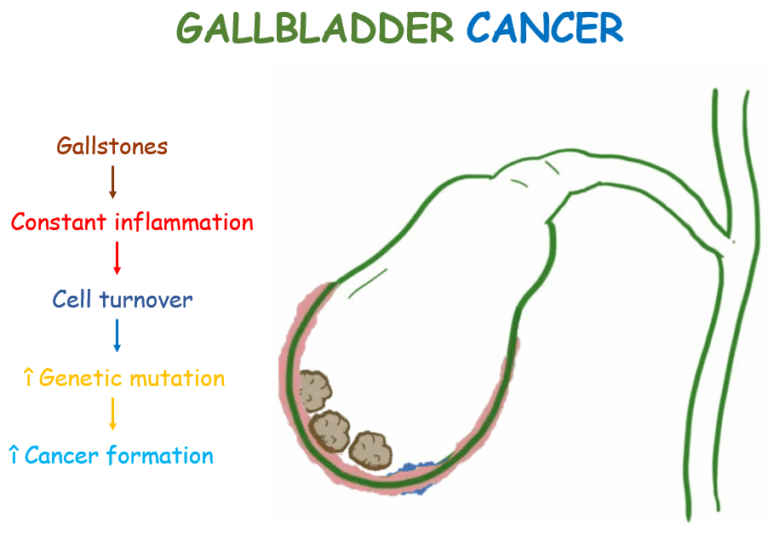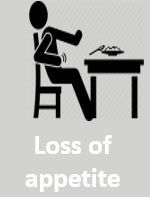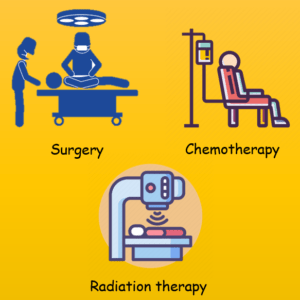Gastrointestinal cancer
refers to malignant conditions of the gastrointestinal tract (GI tract) and accessory organs of digestion including the esophagus, stomach, biliary system, pancreas, small intestine, large intestine, rectum and anus. The symptoms relate to the organ affected and can include obstruction (leading to difficulty swallowing or defecating), abnormal bleeding or other associated problems. The diagnosis often requires endoscopy, followed by biopsy of suspicious tissue. The treatment depends on the location of the tumor, as well as the type of cancer cell and whether it has invaded other tissues or spread elsewhere.
Overall, the GI tract and the accessory organs of digestion (pancreas, liver, gall bladder) are responsible for more cancers and more deaths from cancer than any other system in the body. There is significant geographic variation in the rates of different gastrointestinal cancers.
Esophageal cancer
Esophageal cancer is the sixth-most-common cancer in the world, and its incidence is increasing. Some three to five males are affected for each female. There are two main types of esophageal cancer—adenocarcinoma and squamous cell carcinoma. Cancer of the esophagus is often detected late in as much as there are typically no early symptoms, late symptom is like difficulty in swallowing.
Stomach cancer
Cancer of the stomach, also called gastric cancer, is the fourth-most-common type of cancer and the second-highest cause of cancer death globally. Important factors that may contribute to the development of gastric cancer include diet, smoking and alcohol consumption, genetic aspects (including a number of heritable syndromes) and infections (for example, helicobacter pylori or epstein barr virus).
Pancreatic cancer
Pancreatic cancer is the fifth-most-common cause of cancer deaths. The most significant risk factors for pancreatic cancer are advanced age (over 60) and smoking. chronic pancreatitis, diabetes or other conditions may also be involved in their development. Early pancreatic cancer does not tend to result in any symptom, but when a tumor is advanced, a patient may experience severe pain in the upper abdomen , possibly radiating to the back.[8] Another symptom might be jaundice, a yellowing of the skin and eyes..
Liver cancer
Lorem ipsum dolor sit amet, consectetur adipiscing elit. Ut elit tellus, luctus nec ullamcorper mattis, pulvinar dapibus leo.People get liver cancer (also called hepatocellular carcinoma, HCC or hepatoma) typically from a prolonged Hepatitis B or C infection or as a result of cirrhosis from chronic alcoholism. Liver cancer may bring about yellowing of the skin and eyes (jaundice), itching (pruritus), or cause a build up of fluid in the abdomen (Ascites). A person may feel an enlarging mass, or the cancer might be revealed by abnormal liver function test. Options include Surgical resection, embolisation, ablation or liver transplant.
Gall Bladder Cancer

Cancer of the gall bladder is also rare. Nearly everyone with gallbladder cancer has gallstones. This cancer is more common among North Indians, people with large gallstones, and people with a extensive scarring of the gallbladder, which can occur in severe chronic cholecystitis. Polyps, which are noncancerous (benign) outgrowths of tissue, may develop in the gallbladder. They rarely cause symptoms or require treatment. They are found in about 5% of people during ultrasonography. Sometimes cancers can block the flow of bile, but most blockages are caused by gallstones. Noncancerous tumors in bile ducts also cause blockages.
Symptoms





- Worsening jaundice (yellowish discoloration of the skin and whites of eyes)
- Abdominal discomfort
- Loss of appetite
- Weight loss
- Itchiness
- High fever
The diagnosis is confirmed by imaging. Usually, ultrasonography is done followed by computed tomography (CT).

Treatment

Most bile duct and gallbladder cancers are fatal, but treatment can help control symptoms. Tubes (stents) inserted into a duct allow bile to flow past the blockage. This procedure helps control pain and relieves itchiness. Surgery to remove a cancerous tumor is the best choice if in earlier stage. If tumors have spread from other parts of the body (metastasized), chemotherapy may provide some symptom relief but does not dramatically improve survival.
